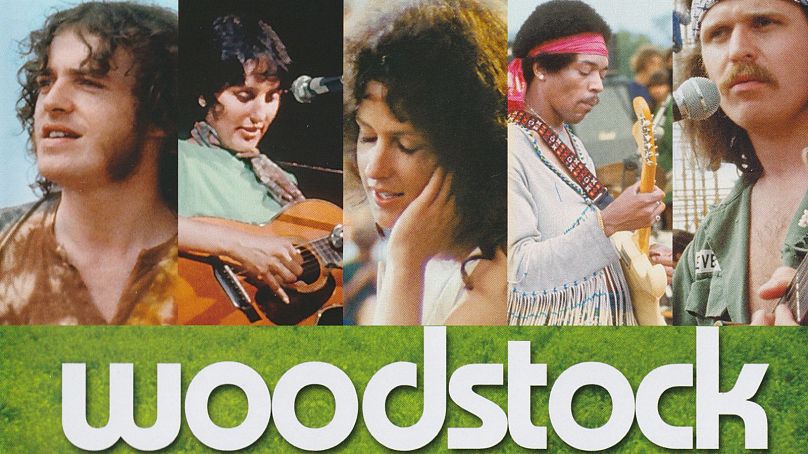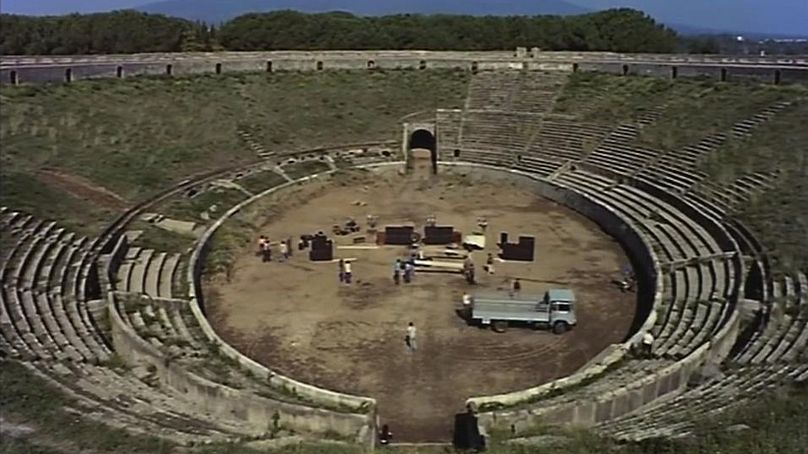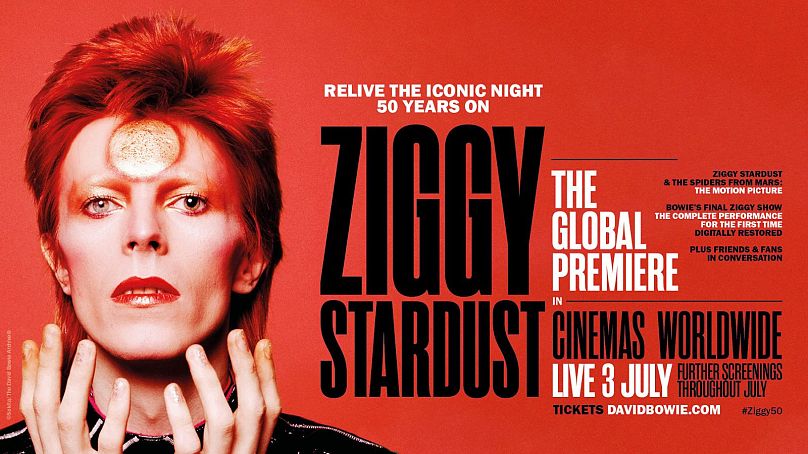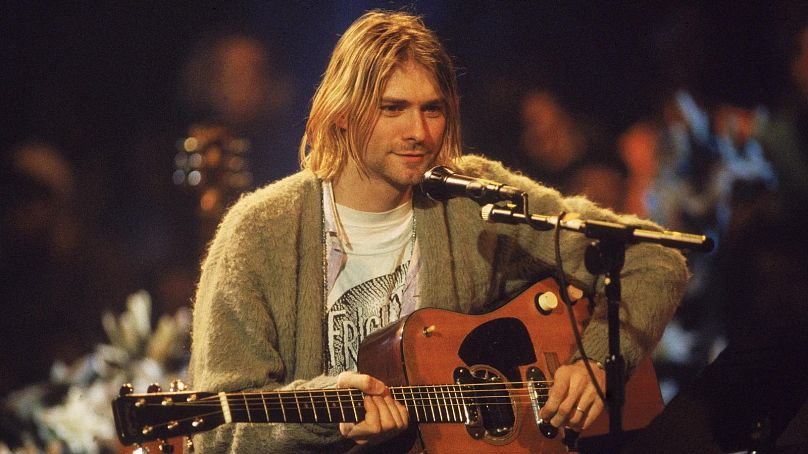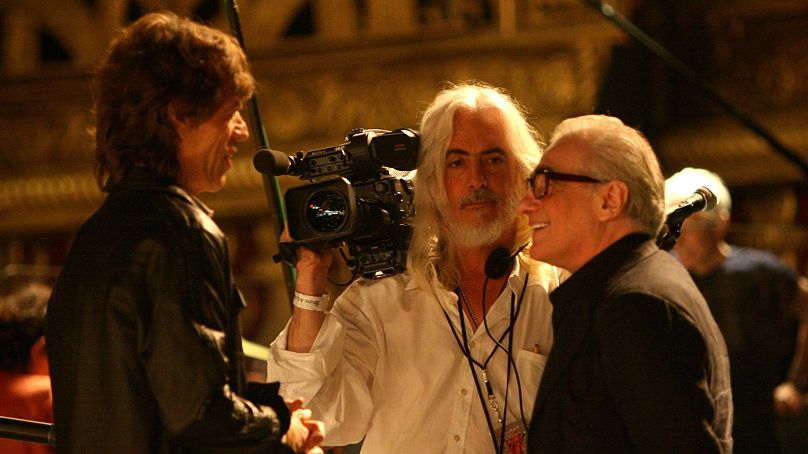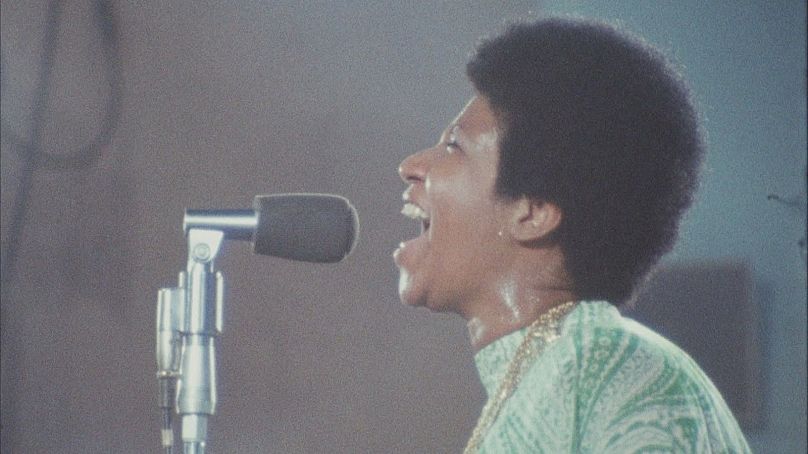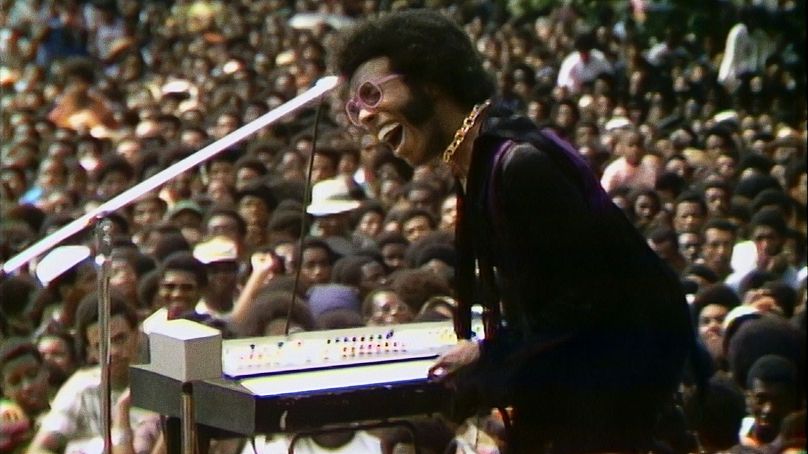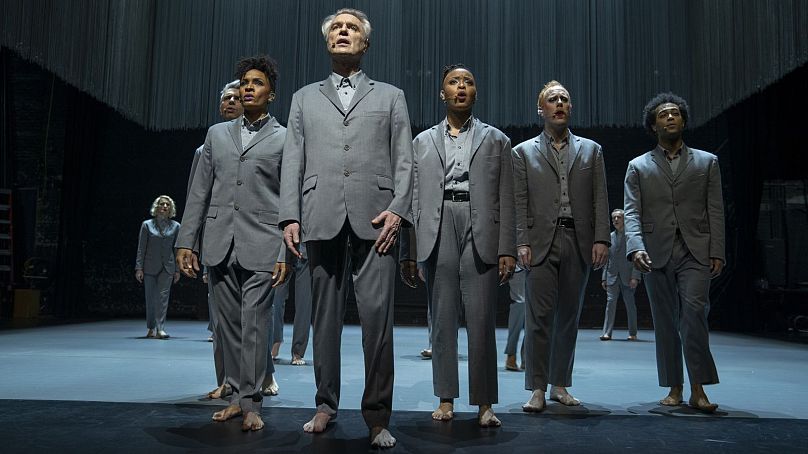It's the unexpected trend of the fall season... As ‘Taylor Swift: Eras Tour’ concert film crosses $100 million in advance sales globally, and Beyoncé readies herself to release her own in December, we ask ourselves: Is the concert film back?
 ADVERTISEMENT
ADVERTISEMENT
Taylor Swift: The Eras Tour concert film had sold more than $100 million (€94.8 million) in advance tickets globally, according to AMC Theatres Distribution and AMC Entertainment as the film is set to open at 8,500 theatres across 100 countries on Friday 13 October.
Audience demand “has been incredible” across the US, AMC said, “from the largest cities to the smallest towns”.
The film has already broken the record for concert film ticket sales since it was announced on 31 August.
This is significant at a time when the Hollywood actors strikes are forcing release schedule changes. The Eras Tour has received a SAG-AFTRA interim agreement so that Taylor Swift can promote it, before she resumes her live shows on 9 November in Argentina, followed by dates in Brazil. The Eras Tour will pick up again in 2024 with shows in Japan, Australia, Singapore, and in Europe from May - August next year.
These advance ticket sales also seem to herald the return of the concert film, a music documentary subgenre that seems to be the unexpected cinematic trend of the fall.
You see, not wishing to be outdone, Beyoncé is set to debut her very own Renaissance: A Film by Beyoncé on 1 December - also distributed by AMC - and Martin Scorsese, not content with simply releasing Killers of the Flower Moon this month, will have his 1978 concert documentary The Last Waltz return to theaters for its 45th anniversary.
But did the music concert film ever go away?
Not really, as the genre didn’t wait for TayTay and Queen B to come along and sell tickets by the shedload.
Still, using the release of these two highly-anticipated concert movies as a springboard, Euronews Culture has compiled a (non-exhaustive) list of the greatest concert movies you can already watch, films that merge live music and behind the scenes documentary filmmaking to better immerse the viewer in landmarks of music history.
These films allow us to witness artists at their prime and often serve as treasured time capsules of a creative period or a remembrance of icons who are no longer with us. They can also serve as soothing balms for those not fortunate enough to have nabbed a front row seat at their favourite artist’s concerts.
We proceed chronologically.
Woodstock: 3 Days of Peace and Music
(1970 – Various)
It’s hard not to include the MacDaddy of them all when discussing concert films: Michael Wadleigh’s documentary about the Woodstock Festival in Bethel, New York in 1969. It features a wealth of footage that would later become iconic, with performances from Janis Joplin, Jimi Hendrix, The Who, and Sly and the Family Stone. It fully encapsulates a seminal moment in US counterculture, and also delves into the organisation of the event. We recommend you don’t mess about with the theatrical cut from 1970 and head straight for the 90s, four-hour director’s cut. If you’re going to witness musical history, do it right.
Live at Pompeii
(1972 – Pink Floyd)
Live at Pompeii captures the iconic band performing in the ruins of Pompeii, with director Adrian Maben translating onto the screen the band’s inherent theatricality. Surrounded by a silly amount of amps and imagery of the remainders of Roman structures, the film also serves as a shot of Pink Floyd as they were about to hit their commercial, pre- 'Dark Side of the Moon' high point. The track 'Careful with That Axe, Eugene' has never sounded so eerie and epic.
Ziggy Stardust and the Spiders from Mars
(1979 – David Bowie)
D.A. Pennebaker’s concert doc chronicles the rise and fall of David Bowie’s famous stage persona and the end of an era when the Starman retired Ziggy. Filmed in 35mm at the Hammersmith Odeon in London, the footage follows Ziggy’s final show – from the fans, the backstage antics, and that end of an era gig. It’s... Well, it’s just wonderful.
MTV Unplugged: Nirvana
(1993 - Nirvana)
It was a toss up between 2011’s Live at the Paramount (the only Nirvana show ever shot on 16mm) and 1993’s MTV Unplugged for the best film to capture Nirvana on stage. We’ve gone for the 90s, as the band’s Unplugged set is truly one for the ages. Beth McCarthy-Miller's concert film shows how one of the most important rock bands of the late 20th century decided to strip down and go all reflective with acoustic versions of their rock anthems and deeper cuts. Filmed mere months before Kurt Cobain’s untimely death, the concert features the now famous covers of Lead Belly’s ‘Where Did You Sleep Last Night’ and Bowie’s ‘The Man Who Sold The World’, both of which would feature on the live album 'MTV UNplugged in New York', one of the greatest live albums in alt rock history.
Shine A Light
(2008 – The Rolling Stones)
There have been several concert films on The Rolling Stones over the decades, and Albert and David Maysles’ Gimme Shelter (1970), which covered the band's 1969 tour, could have easily made this list. However, we’re sticking to one concert film per band, and Martin Scorsese’s 2008 film capturing The Rolling Stones’ 2006 performance at the Beacon Theater in New York City is essential viewing. It covers a single concert but manages to chronicle their entire career, featuring exclusive footage of a band that has aged but carries on turning out amazing performances. And considering we’re only featuring one film per band AND director, check out The Last Waltz, Scorsese’s 1978 documentary depicting The Band’s final performance at the Winterland Ballroom in San Francisco in 1976.
Amazing Grace
(2018 – Aretha Franklin)
Named after the highest-selling gospel album of all time, Amazing Grace is a music doc like no other. Commissioned by Warner Bros and filmed in 1972 at the New Temple Missionary Baptist Church in LA by the late Sydney Pollack, the film captures the two-night recording session by Aretha Franklin. The footage was never seen, however, as the film crew failed to use the all-important clapperboard to synchronize the image with the sound. The concert film was “lost” for decades. Enter music producer Alan Elliott, the man who Pollack appointed as his successor to the project and who, after nearly 30 years, managed to bring one of the Queen of Soul’s greatest performances to the screen. It features outstanding footage of this intimate yet powerful display from one of the best soul singers who ever lived. Essential is putting it mildly.
Summer of Soul (… Or When The Revolution Could Not Be Televised)
(2019 - Various)
The Roots’ Ahmir “Questlove” Thompson offers a unique and vibrant snapshot of a festival you might not have heard of: the Harlem Cultural Festival, which took place on six Sundays between 29 June and 24 August in Harlem. He takes more than 40 hours of mostly ignored footage filmed at the 1969 festival and transformed it into a cultural and political landmark, which complements Nina Simone’s statement prior to heading onstage: ““How can you be an artist and not reflect the times?” It is a truly wonderful film, filled with extraordinary performances from Simone, Stevie Wonder, 5th Dimension, Gladys Knight & the Pips, Mavis Staples, and Sly and the Family Stone. It’s a vital act of reclamation and one of the best music documentaries / concert films you’re likely to see. It won Questlove an Oscar for Best Documentary Feature, and if you can get your hands on the soundtrack, hop to it. You won’t regret it.
David Byrne’s American Utopia
(2020 – David Byrne)
Spike Lee tried his hand at the concert film and gave us one of 2020’s best films. David Byrne's American Utopia is an intimate snapshot of the former Talking Heads frontman's 2019 Broadway show, which is both a concert and an exercise in performance art. Timely, uniquely enthralling and very cinematic, this is a film that manages to both delight fans of Byrne and offer a perfect entry point for those unfamiliar with his work or the Talking Heads. Speaking of which, seek out Jonathan Demme’s 1984 music film Stop Making Sense, which shows Talking Heads at their peak. You won't regret it.
Happy viewing (and listening).











